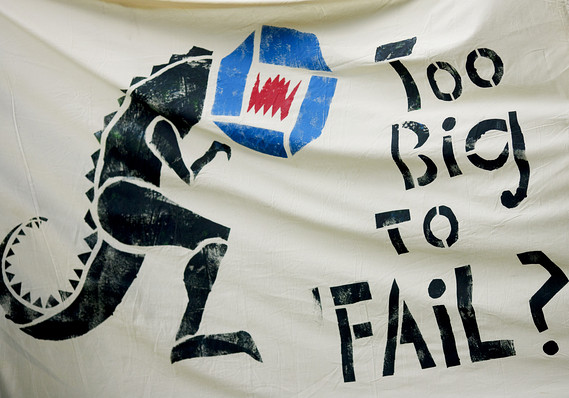
When Robert Benmosche takes over American International Group Inc. on Monday, he will be its fourth chief executive in 14 tumultuous months. He will also be the most decisive, direct and tough leader to run the battered insurer since Maurice R. "Hank" Greenberg's nearly four-decade reign ended amid an accounting scandal in 2005.
Robert Benmosche
Mr. Benmosche, former colleagues say, is willing to upend cozy corporate traditions and make unpopular decisions. His strong personality could be just what AIG and its majority owner, the U.S. government, need to manage the company. But he could also clash with his many overseers, including in Congress, which hasn't shied from offering opinions about how the company should be run.
The former chairman and chief executive of MetLife Inc. was the first CEO in 141 years who didn't spend his career at that life insurer, an experience that should help him step in at AIG, which has equally strong traditions. And, based on that tenure as chief from 1998 to 2006, Mr. Benmosche is likely to quickly take dramatic steps to set the tone of his leadership.
Mr. Benmosche's biggest accomplishment at MetLife was taking the insurer public in what is still one of the biggest initial public offerings of all time. The firm's share price subsequently soared, doubling the gain of the average life insurer's stock during his tenure, and he personally netted $152.6 million in pay from 1996 to 2008, including deferred compensation, according to the Insurance Forum, an independent periodical.
As CEO at MetLife, he took an office a fifth the size of the grand, mahogany-laden one that his predecessors occupied for decades. He instituted a performance-review program that shook up the bureaucratic "Mother Met" culture, financially rewarding those who scored high while dismissing laggards; he boosted the amount of insurance that agents must sell to obtain employee benefits.
Against the wishes of some at MetLife, he moved 2,000 executives and other headquarters employees from their longtime Manhattan offices to a far cheaper neighborhood in Queens filled with meat-packing plants. "It wasn't a popular decision, but it saved money," says M. Evan Lindsay, an insurance-industry specialist at executive-recruiting firm Heidrick & Struggles International Inc.
He even canceled MetLife's membership in the American Council of Life Insurers, a major lobbying group. He returned only after the ACLI shrank its dues and put greater emphasis on issues the MetLife CEO cared about, such as tax policy and international affairs, says Frank Keating, the ACLI's chief executive.
It isn't that the 65-year-old executive doesn't seek opinions. At MetLife, he was known to call managers many levels down the chain of command to ferret out information, starting the conversation, "Hi, it's Bob." When he was put in charge of the insurer's sales force in 1996, "the first thing he did was go around the country and have town meetings with all the salespeople and managers," recalls Harry Kamen, Mr. Benmosche's predecessor as MetLife's head. "He didn't go into his big office and close his door."
Still, Mr. Benmosche is "kind of a big fellow" with "a strong voice and a strong mind," Mr. Kamen says. When Mr. Benmosche, who joined MetLife in September 1995, was under consideration to succeed him, Mr. Kamen had a concern those characteristics could stifle debate. But "he was conscious of being dominating," Mr. Kamen says. In meeting with managers, "he would tell them that he knows that he is a strong personality and he may be opinionated on certain things, but if they disagree with them, he wants to hear it" and said sharing their view was their duty. Mr. Kamen says he recommended him to the board as his successor.
If Mr. Benmosche sticks with AIG's planned strategy, many of his experiences at MetLife—a rival to AIG in many products—will come into play. AIG, recipient of one of the biggest aid packages of last year's financial-system meltdown, is gearing up to do IPOs and asset sales to repay taxpayers.
MetLife's IPO was one of the 15 biggest ever in the U.S., according to data firm Dealogic. Mr. Benmosche has been a director of Credit Suisse since 2002 and joined MetLife from investment bank and stock brokerage PaineWebber.
Mr. Benmosche understands investment bankers' motivations, Mr. Kamen says. "He's familiar with the pros and cons and the pricing issues and conflicts," he says. "His experience is that Wall Street is out to make money, so if you're on the other side of the table, you have to be aware of that."
The new CEO takes over from Edward Liddy, the understated former CEO of Allstate Corp. who struggled to balance the competing interests of the government and the company. Mr. Liddy succeeded Robert Willumstad, AIG's cerebral and soft-spoken former chairman, who was ousted by the government. The revolving door began with the June 2008 resignation of Martin Sullivan, Mr. Greenberg's longtime deputy, whose easygoing demeanor stood in stark contrast to Mr. Greenberg's sharp tongue.
But while Mr. Benmosche's blunt style may hearken back to Mr. Greenberg, the new CEO was viewed more as a bull in a china shop at times at MetLife, not the intimidating monarch that some saw in Mr. Greenberg.
At AIG, Mr. Benmosche has negotiated a pay package worth $7 million to $10 million, weighted toward restricted stock, which AIG has discussed with government officials. At a session with headquarters employees last week, Mr. Benmosche said he didn't come cheap and he wasn't going to work for nothing, people familiar with the matter said. Mr. Liddy took as compensation one dollar.
As for working with Washington, a crucial part of the job given the government's stake and oversight of the company, Mr. Benmosche's experience doesn't appear extensive. MetLife owns MetLife Bank, and the company is regulated as a federal bank-holding company. But state regulators oversee the insurance units, and they were the ones who approved MetLife's conversion from being owned by its policyholders to being publicly traded.
The "demutualization" of MetLife into a publicly traded company was part of a wave of such changes. Critics complained the conversions didn't fairly compensate policyholders for the ownership stakes they gave up, even as investment banks and other advisers "made a killing" in fees, and Wall Street profited from buying IPO shares at cheap prices, says Jason Adkins, a lawyer who founded the policyholder-rights Center for Insurance Research in 1991. One aspect of MetLife's conversion has won praise: It provided stock to even the smallest policyholders, rather than cash compensation, which meant they benefited when the shares rose from the IPO price, Mr. Adkins says.
Mr. Benmosche's father died when he was 10, leaving the family struggling to run a restaurant in New York's Catskill Mountains. He drove a delivery truck to help pay for his math degree at Alfred University, about an hour from Corning, N.Y., and later served as an Army lieutenant.
He has a soft side. In 2007, Ken Karlewicz, owner of Mr. K's Window Cleaning, was providing an estimate for Mr. Benmosche's home northwest of New York City, when they began chatting about the window cleaner's passion: running a photography program for kids. Out of that conversation came a nine-day stay by the teacher and five students this past October at Mr. Benmosche's villa in Dubrovnik, Croatia, with breathtaking views of the Adriatic Sea.
Robert Benmosche
Mr. Benmosche, former colleagues say, is willing to upend cozy corporate traditions and make unpopular decisions. His strong personality could be just what AIG and its majority owner, the U.S. government, need to manage the company. But he could also clash with his many overseers, including in Congress, which hasn't shied from offering opinions about how the company should be run.
The former chairman and chief executive of MetLife Inc. was the first CEO in 141 years who didn't spend his career at that life insurer, an experience that should help him step in at AIG, which has equally strong traditions. And, based on that tenure as chief from 1998 to 2006, Mr. Benmosche is likely to quickly take dramatic steps to set the tone of his leadership.
Mr. Benmosche's biggest accomplishment at MetLife was taking the insurer public in what is still one of the biggest initial public offerings of all time. The firm's share price subsequently soared, doubling the gain of the average life insurer's stock during his tenure, and he personally netted $152.6 million in pay from 1996 to 2008, including deferred compensation, according to the Insurance Forum, an independent periodical.
As CEO at MetLife, he took an office a fifth the size of the grand, mahogany-laden one that his predecessors occupied for decades. He instituted a performance-review program that shook up the bureaucratic "Mother Met" culture, financially rewarding those who scored high while dismissing laggards; he boosted the amount of insurance that agents must sell to obtain employee benefits.
Against the wishes of some at MetLife, he moved 2,000 executives and other headquarters employees from their longtime Manhattan offices to a far cheaper neighborhood in Queens filled with meat-packing plants. "It wasn't a popular decision, but it saved money," says M. Evan Lindsay, an insurance-industry specialist at executive-recruiting firm Heidrick & Struggles International Inc.
He even canceled MetLife's membership in the American Council of Life Insurers, a major lobbying group. He returned only after the ACLI shrank its dues and put greater emphasis on issues the MetLife CEO cared about, such as tax policy and international affairs, says Frank Keating, the ACLI's chief executive.
It isn't that the 65-year-old executive doesn't seek opinions. At MetLife, he was known to call managers many levels down the chain of command to ferret out information, starting the conversation, "Hi, it's Bob." When he was put in charge of the insurer's sales force in 1996, "the first thing he did was go around the country and have town meetings with all the salespeople and managers," recalls Harry Kamen, Mr. Benmosche's predecessor as MetLife's head. "He didn't go into his big office and close his door."
Still, Mr. Benmosche is "kind of a big fellow" with "a strong voice and a strong mind," Mr. Kamen says. When Mr. Benmosche, who joined MetLife in September 1995, was under consideration to succeed him, Mr. Kamen had a concern those characteristics could stifle debate. But "he was conscious of being dominating," Mr. Kamen says. In meeting with managers, "he would tell them that he knows that he is a strong personality and he may be opinionated on certain things, but if they disagree with them, he wants to hear it" and said sharing their view was their duty. Mr. Kamen says he recommended him to the board as his successor.
If Mr. Benmosche sticks with AIG's planned strategy, many of his experiences at MetLife—a rival to AIG in many products—will come into play. AIG, recipient of one of the biggest aid packages of last year's financial-system meltdown, is gearing up to do IPOs and asset sales to repay taxpayers.
MetLife's IPO was one of the 15 biggest ever in the U.S., according to data firm Dealogic. Mr. Benmosche has been a director of Credit Suisse since 2002 and joined MetLife from investment bank and stock brokerage PaineWebber.
Mr. Benmosche understands investment bankers' motivations, Mr. Kamen says. "He's familiar with the pros and cons and the pricing issues and conflicts," he says. "His experience is that Wall Street is out to make money, so if you're on the other side of the table, you have to be aware of that."
The new CEO takes over from Edward Liddy, the understated former CEO of Allstate Corp. who struggled to balance the competing interests of the government and the company. Mr. Liddy succeeded Robert Willumstad, AIG's cerebral and soft-spoken former chairman, who was ousted by the government. The revolving door began with the June 2008 resignation of Martin Sullivan, Mr. Greenberg's longtime deputy, whose easygoing demeanor stood in stark contrast to Mr. Greenberg's sharp tongue.
But while Mr. Benmosche's blunt style may hearken back to Mr. Greenberg, the new CEO was viewed more as a bull in a china shop at times at MetLife, not the intimidating monarch that some saw in Mr. Greenberg.
At AIG, Mr. Benmosche has negotiated a pay package worth $7 million to $10 million, weighted toward restricted stock, which AIG has discussed with government officials. At a session with headquarters employees last week, Mr. Benmosche said he didn't come cheap and he wasn't going to work for nothing, people familiar with the matter said. Mr. Liddy took as compensation one dollar.
As for working with Washington, a crucial part of the job given the government's stake and oversight of the company, Mr. Benmosche's experience doesn't appear extensive. MetLife owns MetLife Bank, and the company is regulated as a federal bank-holding company. But state regulators oversee the insurance units, and they were the ones who approved MetLife's conversion from being owned by its policyholders to being publicly traded.
The "demutualization" of MetLife into a publicly traded company was part of a wave of such changes. Critics complained the conversions didn't fairly compensate policyholders for the ownership stakes they gave up, even as investment banks and other advisers "made a killing" in fees, and Wall Street profited from buying IPO shares at cheap prices, says Jason Adkins, a lawyer who founded the policyholder-rights Center for Insurance Research in 1991. One aspect of MetLife's conversion has won praise: It provided stock to even the smallest policyholders, rather than cash compensation, which meant they benefited when the shares rose from the IPO price, Mr. Adkins says.
Mr. Benmosche's father died when he was 10, leaving the family struggling to run a restaurant in New York's Catskill Mountains. He drove a delivery truck to help pay for his math degree at Alfred University, about an hour from Corning, N.Y., and later served as an Army lieutenant.
He has a soft side. In 2007, Ken Karlewicz, owner of Mr. K's Window Cleaning, was providing an estimate for Mr. Benmosche's home northwest of New York City, when they began chatting about the window cleaner's passion: running a photography program for kids. Out of that conversation came a nine-day stay by the teacher and five students this past October at Mr. Benmosche's villa in Dubrovnik, Croatia, with breathtaking views of the Adriatic Sea.



















No hay comentarios:
Publicar un comentario